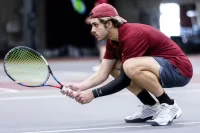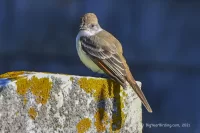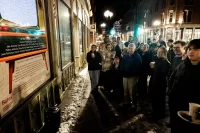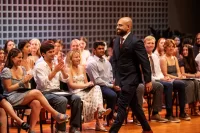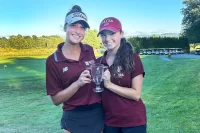
Our latest in an occasional roundup of quotable Bates quotes, this time about a bald eagle named Jeff, the fun of adulting off campus, and the joys of reading, writing, and learning at Bates.
“We have this bald eagle named Jeff that sometimes comes and says hi.”
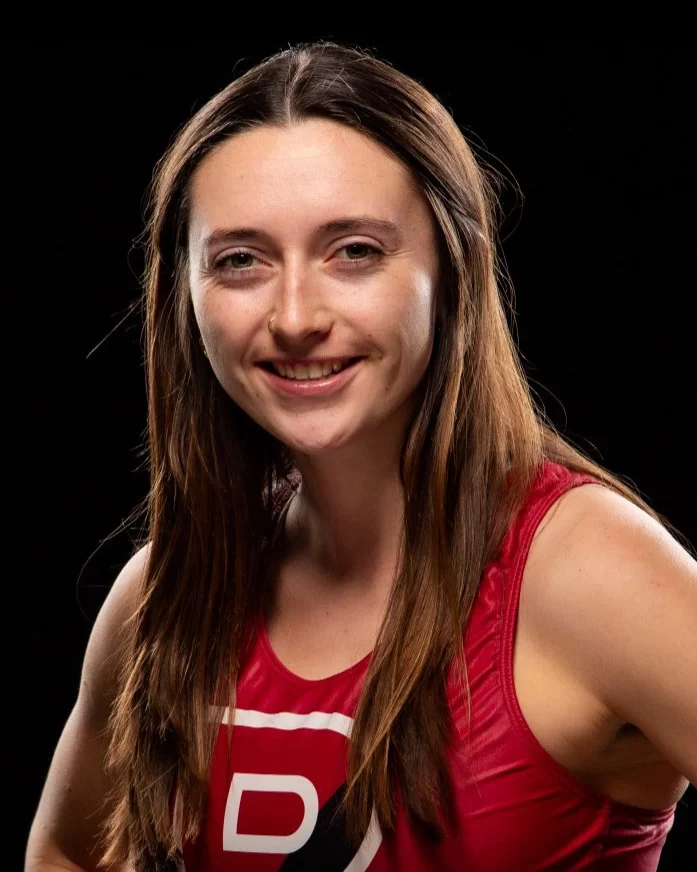
— Women’s rowing captain Hannah Burdick ’25 of Lyme, N.H., on the joy and beauty of rowing on the Androscoggin River, adding, “last Friday morning we watched the sunrise from the water, which just starts your day out in the best mood you’ve ever imagined.”
“Mount David Summit is one those many full-circle moments. I came freshman year to the summit and was like, ‘Oh my gosh, so many students doing so many things.’ Now I’m lucky enough to have my Google Calendar so full of all of all my friends’ presentations.”
— Sloan Phillips ’25, of Evergreen, Colo., on the feeling of being among senior friends at Mount David Summit, where Phillips presented biochemistry research.
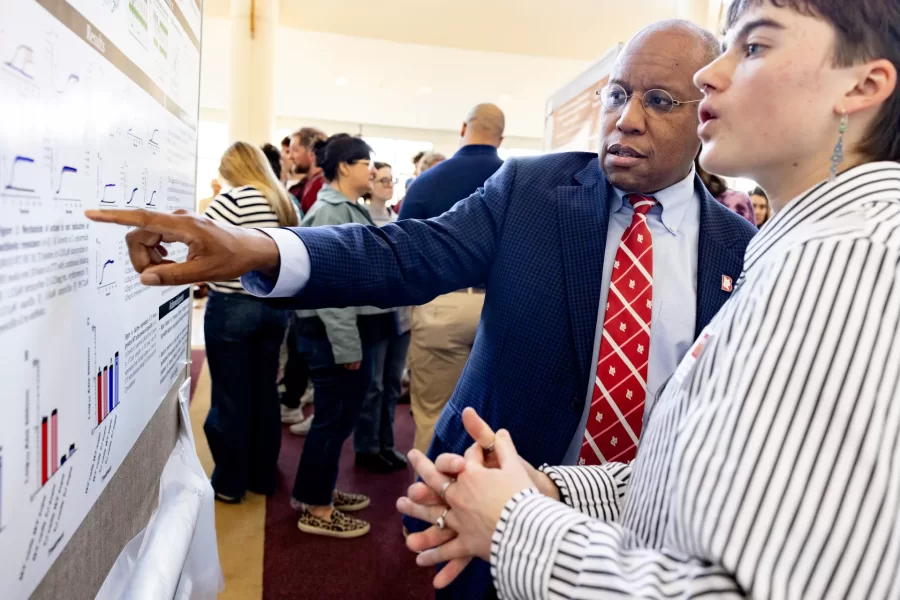
“We cannot punish our way to excellence.”
— Associate Professor of Education Mara Tieken in her op-ed in The Daily Yonder, explaining how school closures and consolidations harm students and their rural communities. “Closure is not an answer to budget shortfalls, academic underperformance, or educational inequality. There is no cheaper alternative.”
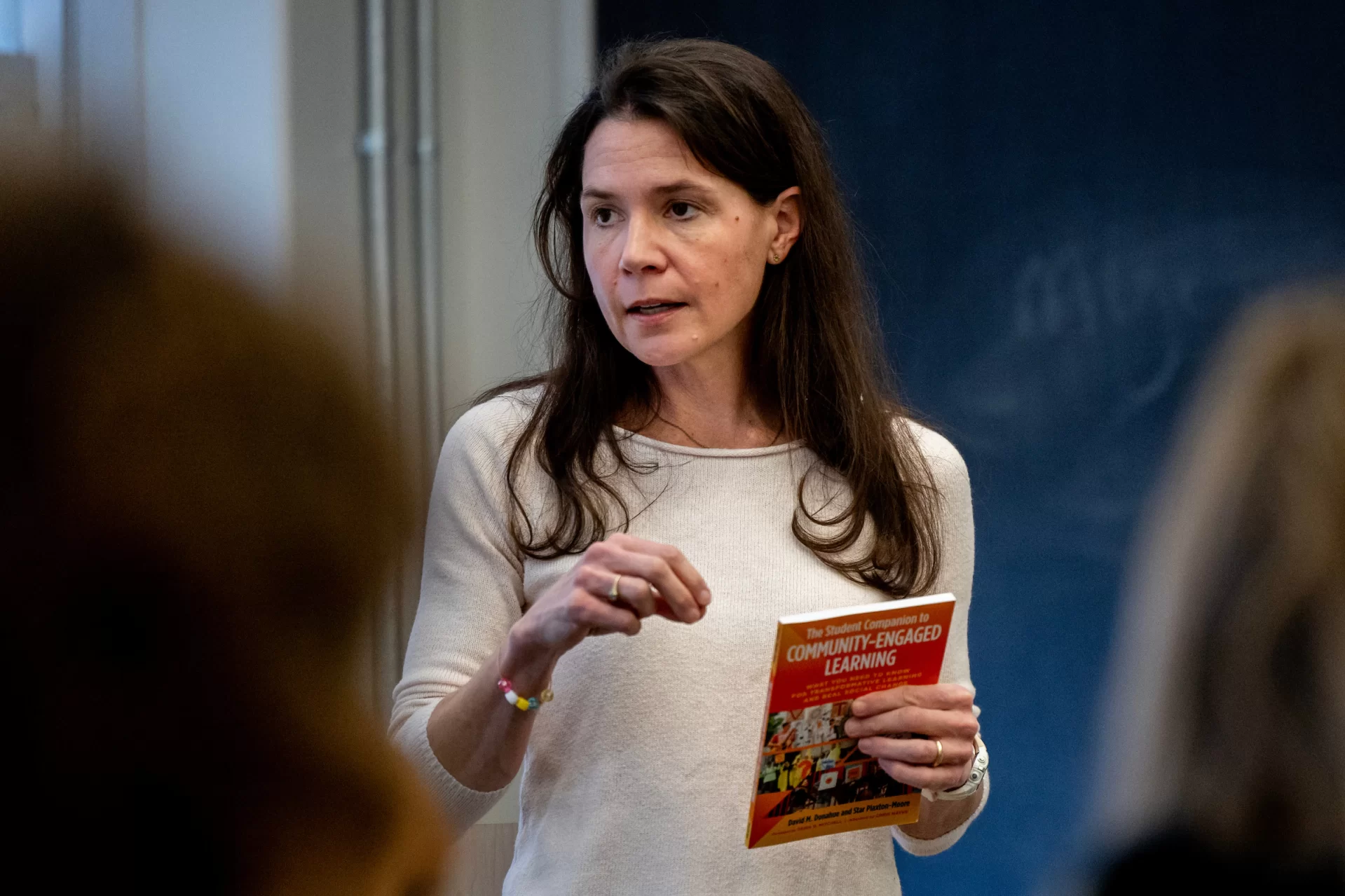
“I want to thank you guys for doing it with me and for being a part of me.”
— Blessing Akinmade ’25, a biochemistry major from Newark, N.J., speaking at a three-senior thesis binding ceremony on the steps of Coram Library, sharing appreciation for fellow seniors Sophia Ibeh, a biochemistry major from Houston, and Darlene Igiraneza, a biology major from Glendale, Calif. “What was hard work is now a small picture of who we are, and a snippet of what college was to us.”
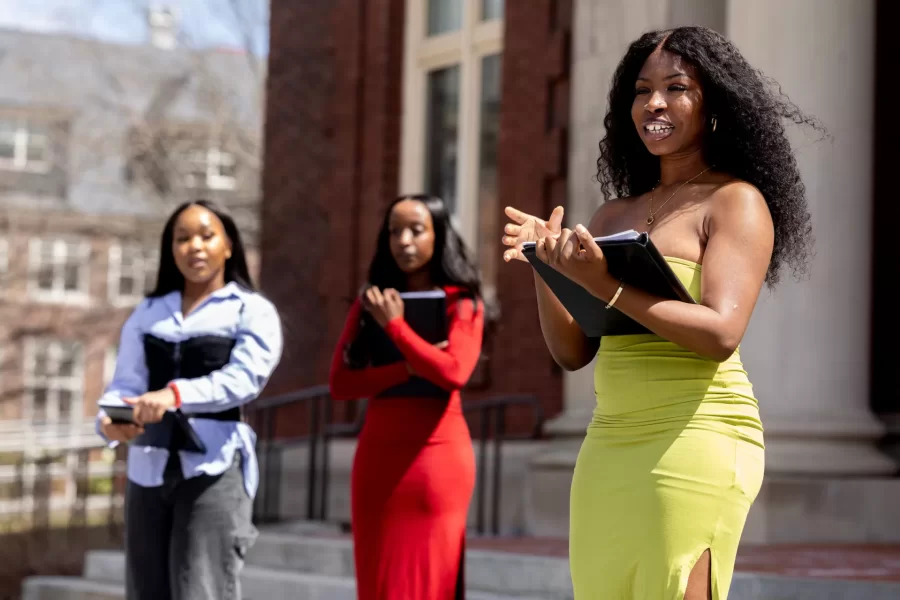
“I am endlessly mesmerized by the depths of the underwater world, and as I go deeper into its mystery I find my internal world mirrored back.”
— Miryam Keller ’25, of Cape Elizabeth, Maine, on her mixed-media senior thesis in studio art, in which she used salt water from the Maine coast to create abstract beauty.
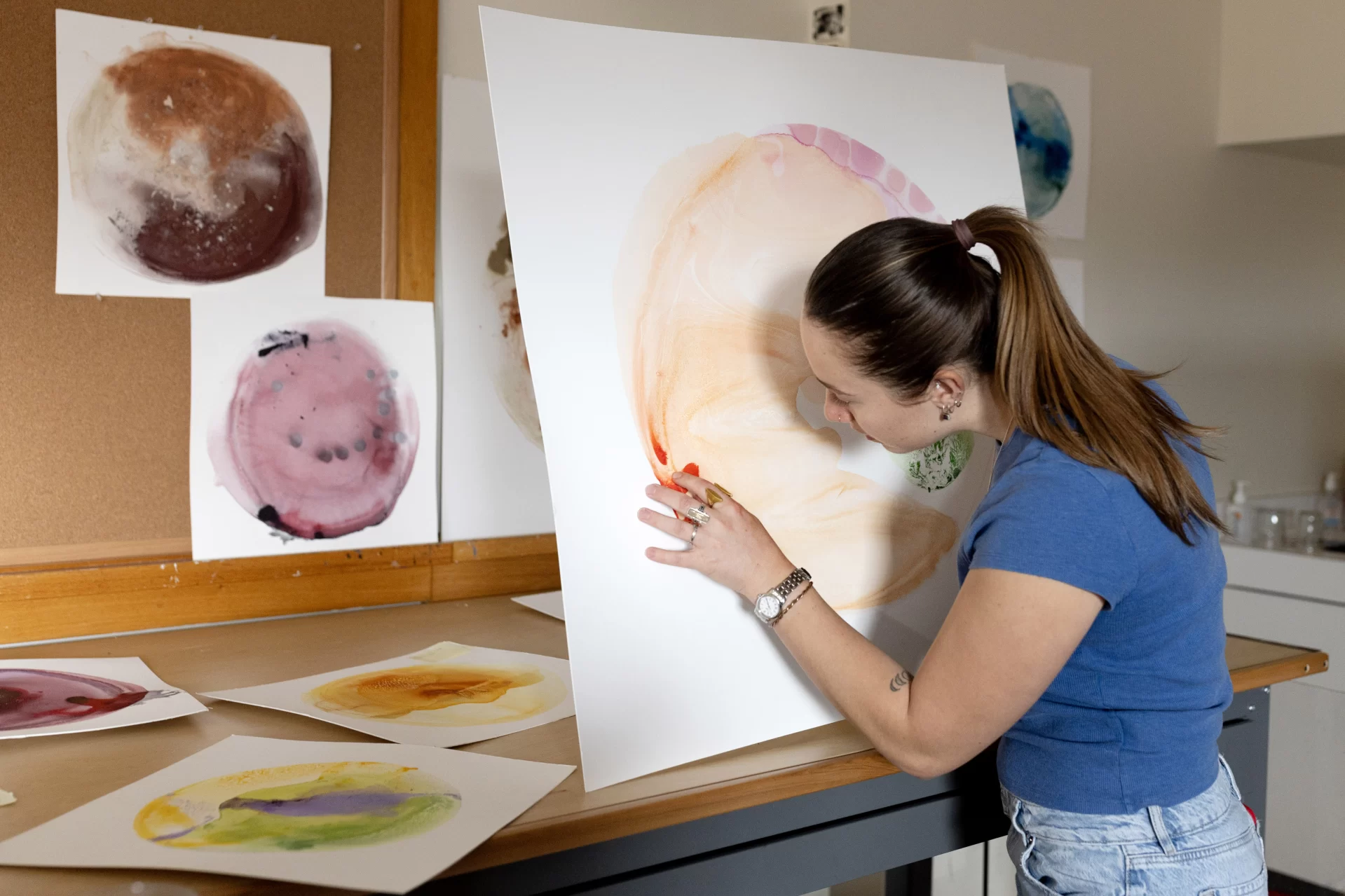
“It’s a little bit like meeting some celebrities.”
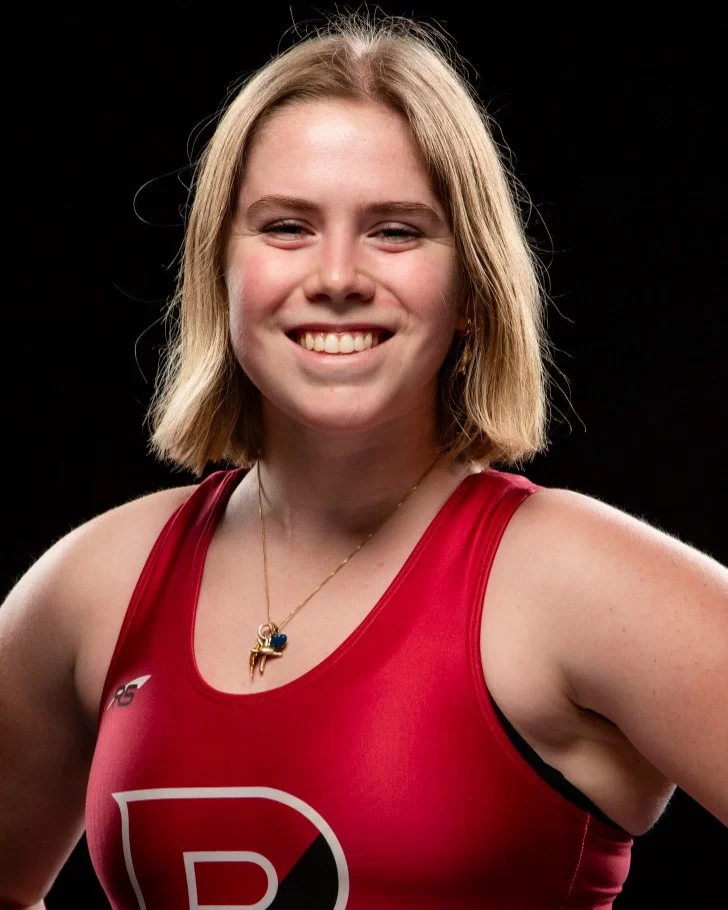
— Women’s rowing captain Maddie Kemp ’25 of Bethesda, Md., after the President’s Cup regatta in April when Bates honored the women’s team that captured the NCAA Division III rowing title in 2015. “These are names that would get tossed around as way back when. These are people who have done the job of Bates rowing and done an excellent job of it.”
“I get to say hi to every single person who enters the library.”
— Ruslan Peredelskyi ’25 of Kyiv, Ukraine, on the side benefits of his job at the circulation desk, located close to the front doors of Ladd Library.
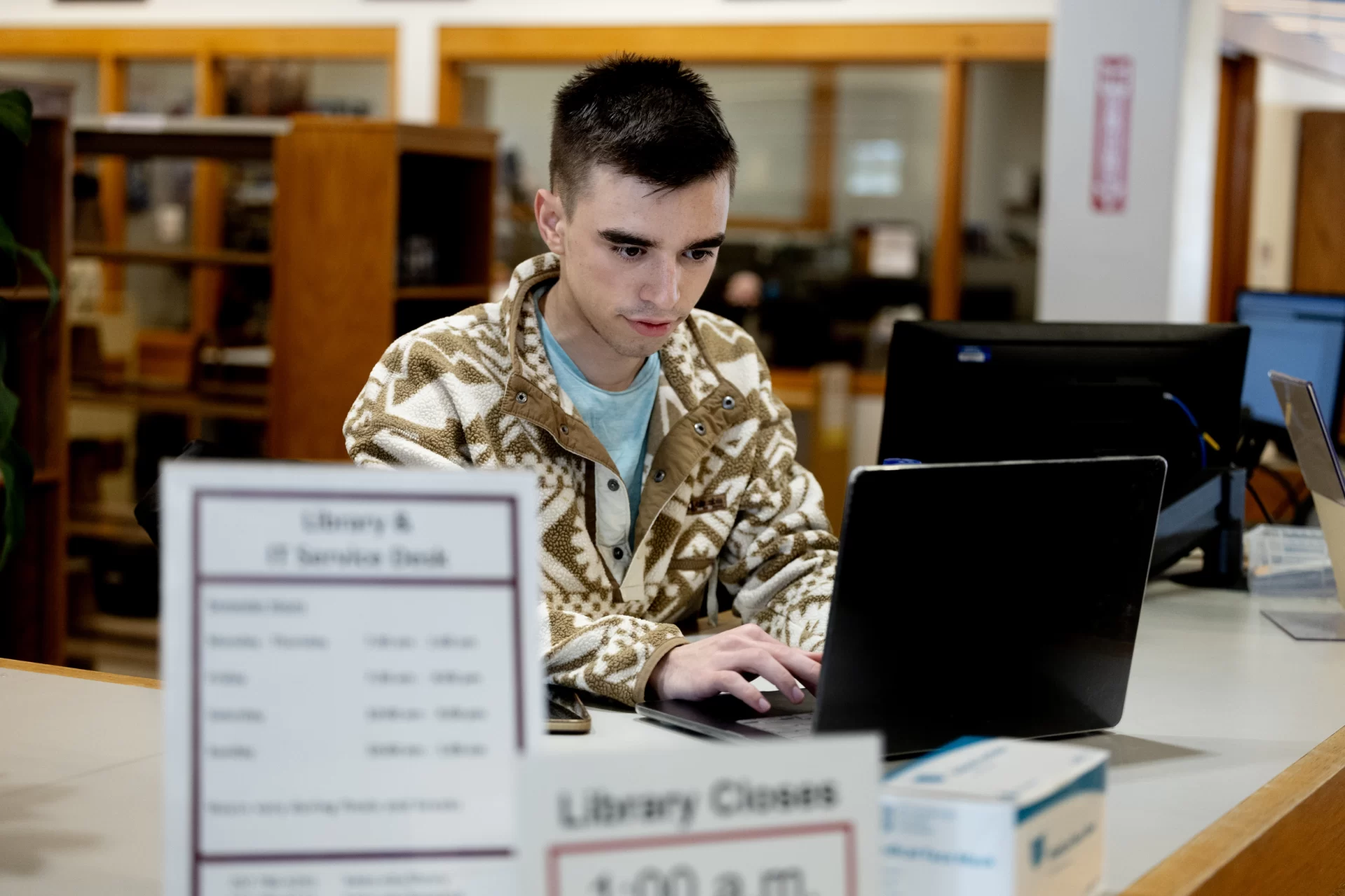
“I beat the finals choker allegations.”
— Max Corey ’26 of Dublin, Calif, on his breakthrough victory in the 100-yard freestyle at the NCAA Division III Swimming and Diving Championships in March, in which he beat the field and his own self-doubt.
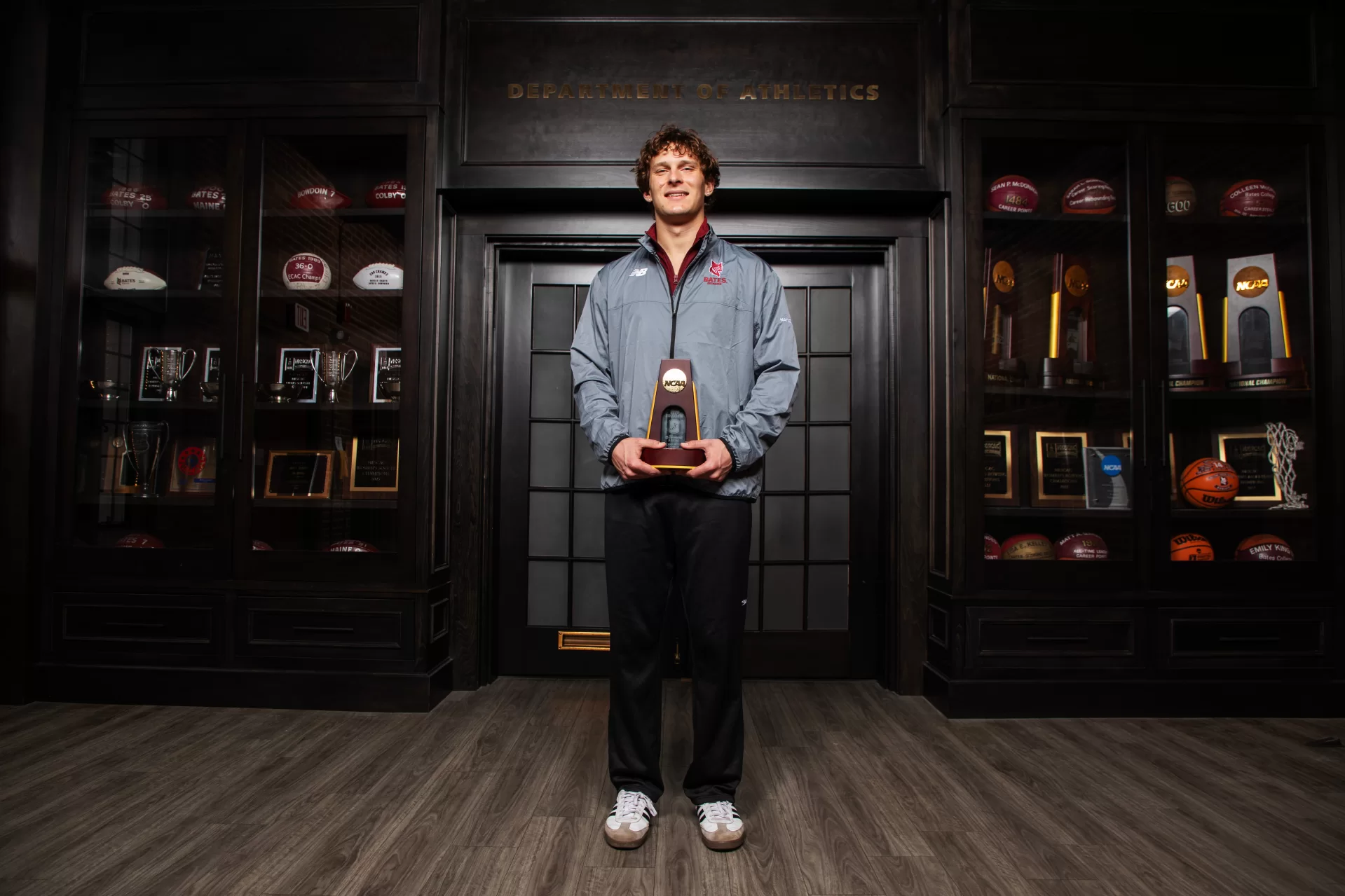
“If I’m working on it, chances are I’m passionate about it. I don’t really see the point in working on something I don’t care about.”
— Matthew Peeler ’26 of New York City, winner of a 2025 Truman Scholarship for future public service leaders, on his zeal for the study of constitutional law.
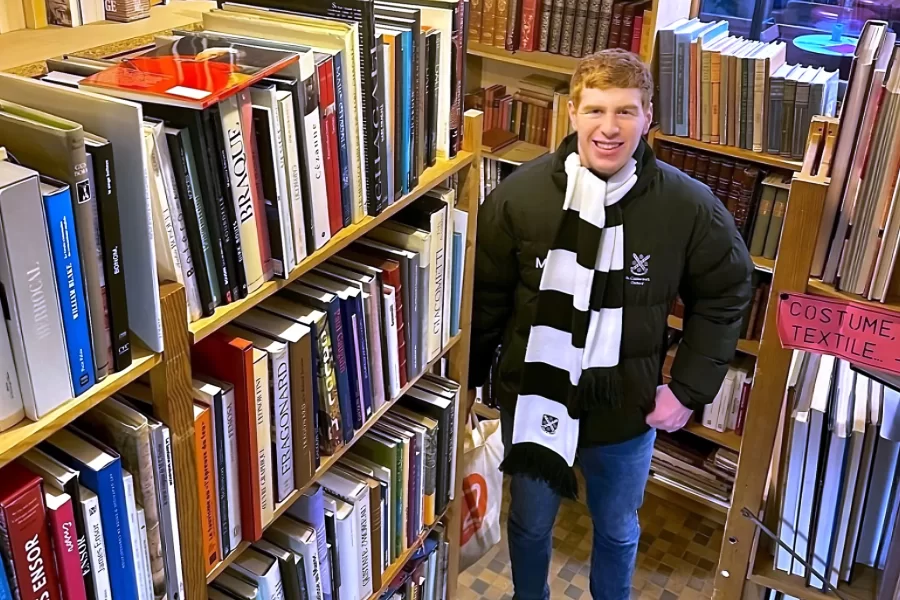
“It’s kind of funny to go through that adultness together.”
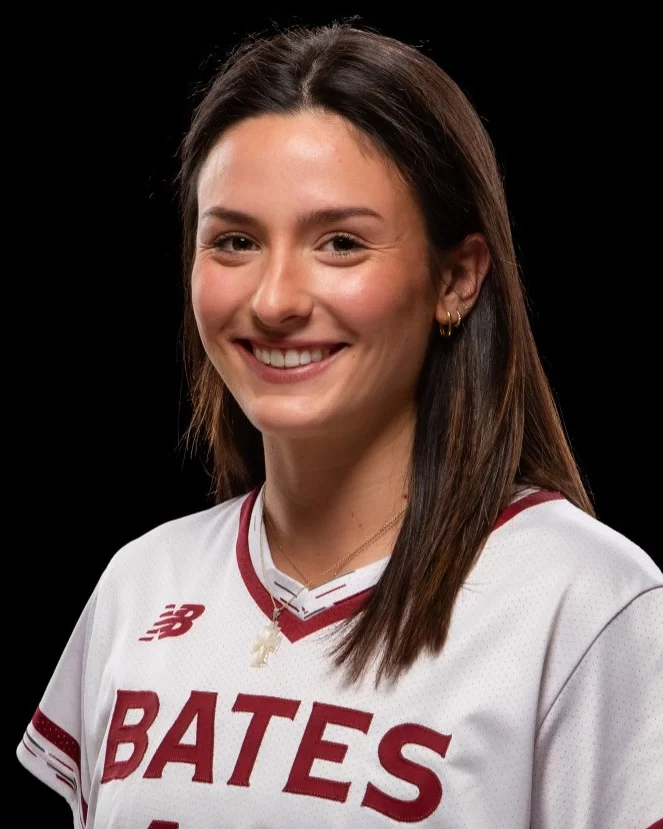
— Women’s lacrosse captain Olivia Hall ’25 of Boston, describing off-campus Bates life with fellow senior teammates. “There’s a lot of silly things that I kind of wasn’t expecting, just taking the trash out or having to deal with the heating not working and stuff.”
“It’s a very friendly environment to dive into a very scary thing.”
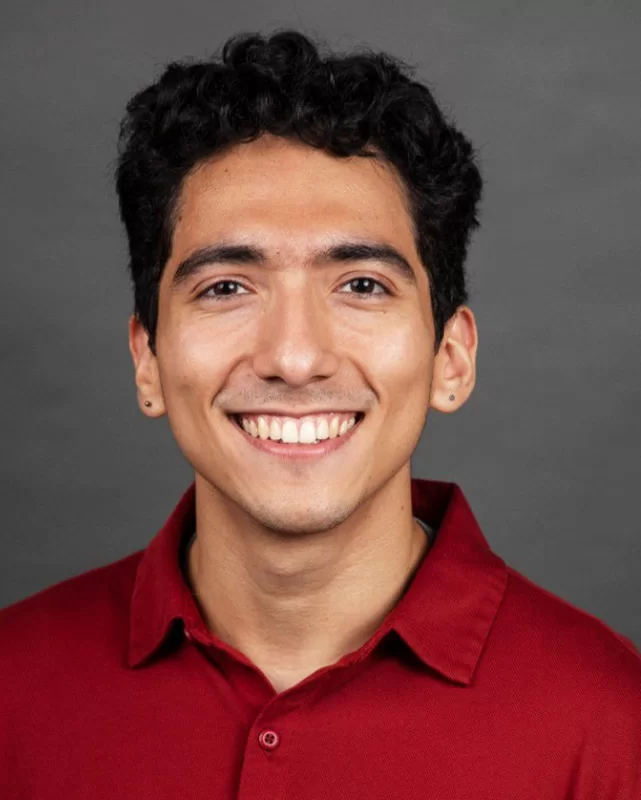
— Brandon Villalta Lopez ’25 of Nicaragua and Costa Rica, on presenting his research at Mount David Summit, where students seek both to communicate their work “and make people excited about it.” The summit is a “brilliant opportunity to do this in a place that feels safe and home but still reaches so many people.”
“I felt like if I’m able to finish this the way I started it, it’s going to go really well.”
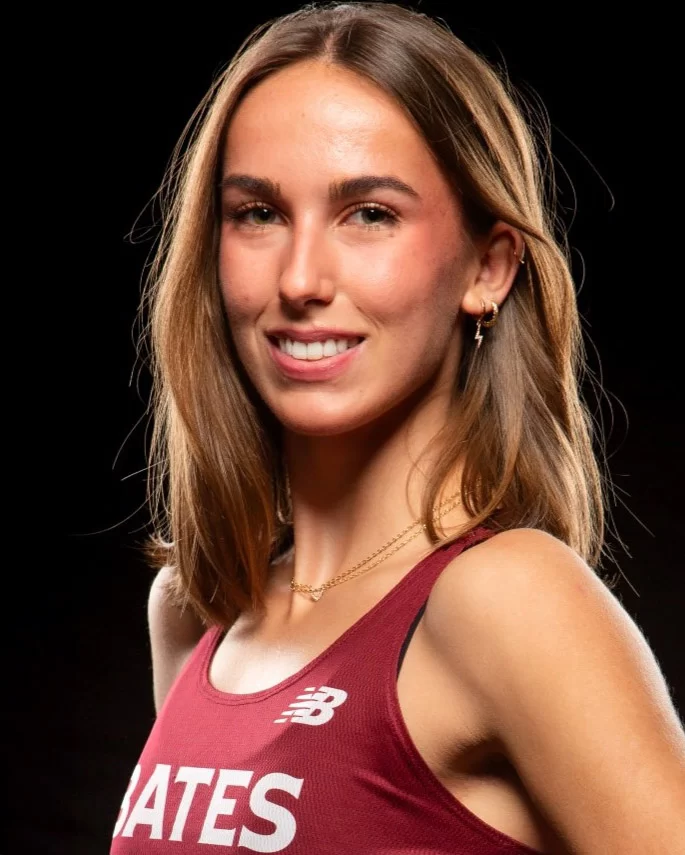
— Track and field athlete Campbell Johnson ’28 of Naples, Maine, on a recent long jump that places her fourth-best in Bates history. “You can feel it when you get into the air, whether your body position is going to be good or not.”
“ I feel lucky to end my Bates experience where it started, where I fell in love with reading, with writing, with learning.”

— Max Olson ’25, of Beverly, Mass., whose senior thesis analyzes JRR Tolkein’s works through a social and historical lens, recalling his fourth-grade book project on The Hobbit and being encouraged by his teacher pursue reading and writing. “That’s something I didn’t forget.”
“I feel like I’m always in this microcosm of really diverse opinions and preparedness from students.”
— Associate Professor of Digital and Computational Studies Carrie Diaz Eaton, speaking about her students’ varied attitudes toward AI on Maine Calling, Maine Public’s weekday radio program.
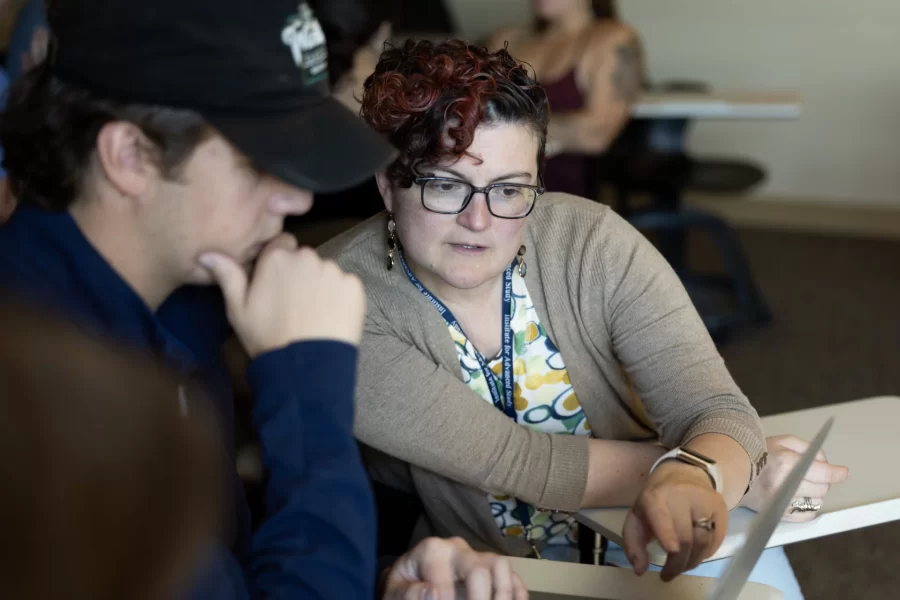
“I start laughing in my head. I start to sing a song to myself.”
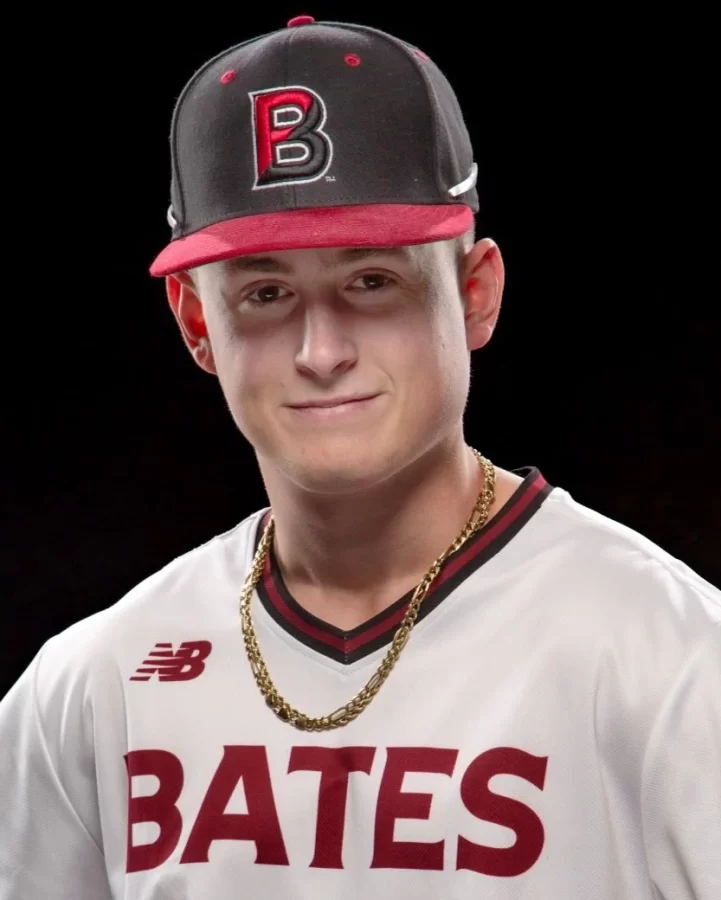
— Baseball player Ben Genser ’25 of Newton Center, Mass., on his mindset at the plate when he has two strikes. “It’s weird to say, but I feel more relaxed hitting. You can kind of be a kid again and just protect the zone.”
“We have our regulars, which we love seeing. I asked one, ‘Do you get tired of me kicking you out?’ They say no, it’s a good reminder — they tend to lose track of time.”
— Karla Chichester, a member of the Ladd Library access services staff, on her late-night routine as the 1 a.m. closing time of the library approaches.
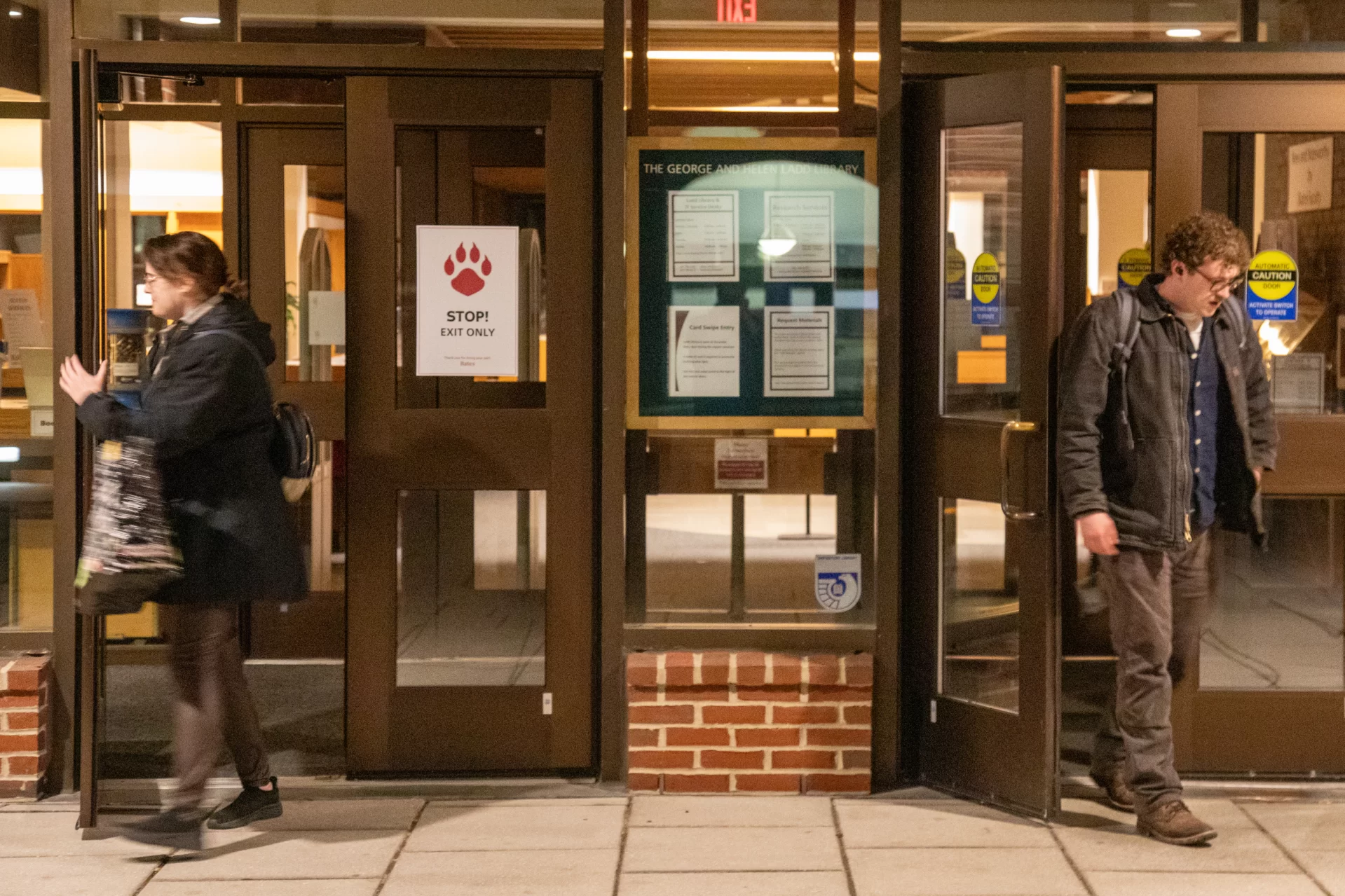
“Coach came over and said, ‘You are going to row terribly today. The waves are going to come over you, and your oar is going to get stuck. It’s going to be brutal. But you just need to stay determined and gritty — because everyone is facing the same conditions.’”
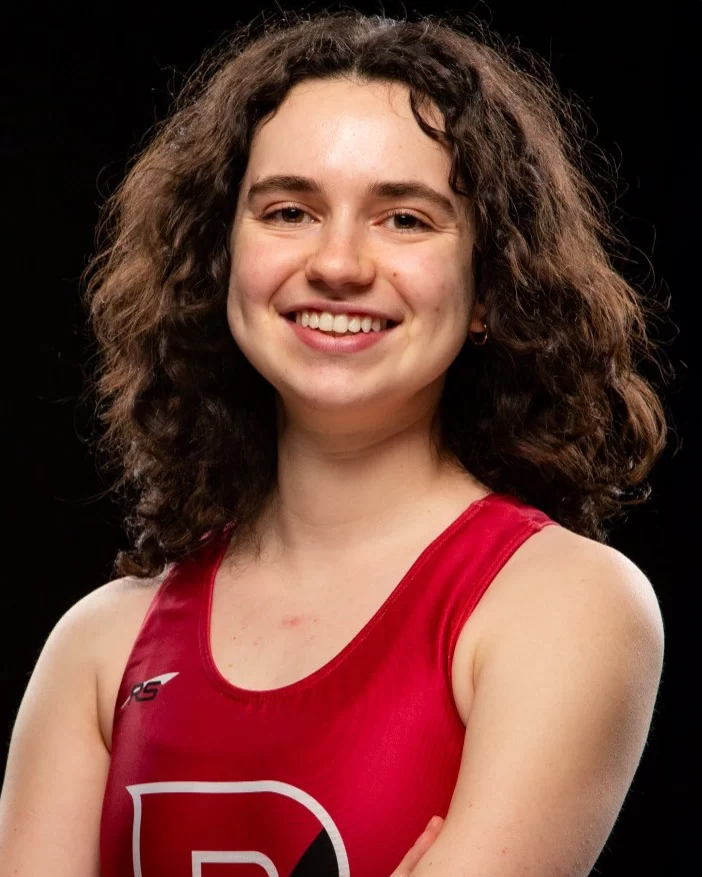
— Izzy Beck ’25 of Montclair, N.J., coxswain of the men’s second varsity eight, on head coach Peter Steenstra’s advice before a windy regatta on the Charles River that saw Bates defeat Trinity and the MIT on April 20.
